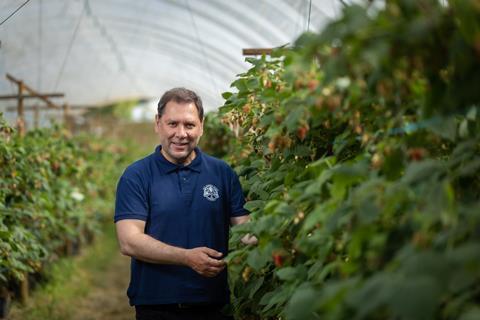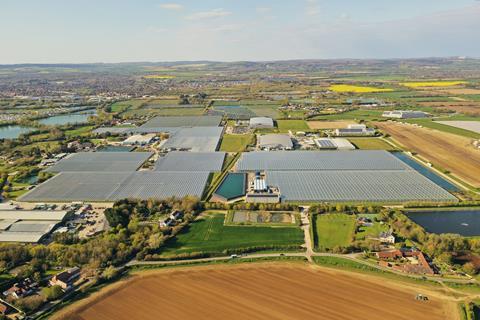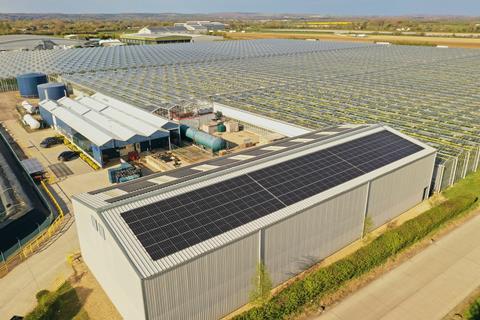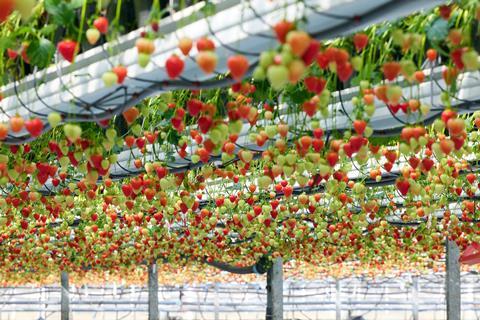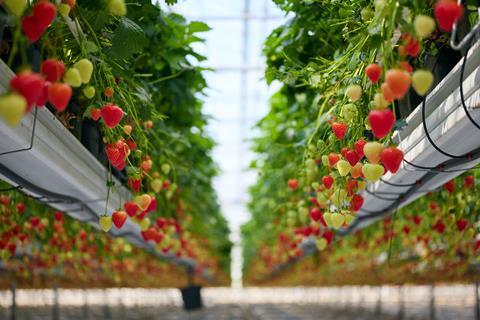Producer embarks on 12-month domestic supply thanks to a new energy solution to make glasshouse production more efficient and sustainable
The Summer Berry Company is preparing to offer British strawberries all year round thanks to a green energy solution at its glasshouse site in West Sussex.
The company grows strawberries under 26 hectares of glass near Chichester and is the UK’s largest glasshouse berry grower. Up until now, The Summer Berry Company has produced strawberries from March to November, but the sustainable energy investment will allow the business to add December-February to its harvesting calendar, ensuring 12-month supply.
The move follows similar efforts by Dyson Farming in 2021. The producer stretched its strawberry harvesting period to 42 weeks (mid-March to the end of November) after investing in a 6ha glasshouse in Lincolnshire powered by renewable electricity and heat from an adjacent anaerobic digester.
To develop its new system, The Summer Berry Company has partnered with Ebtech Energy Systems, a specialist in decarbonising heating and cooling in the horticultural, agricultural and commercial sectors. The energy solution will reduce reliance on fossil fuels by incorporating a Combined Heat and Power (CHP) plant, a combined water and air source heat pump, a site-wide heat network, and LED lighting.
The CHP plant will allow the company to generate its own electricity to power both the LED lighting and the heat pumps. And the heat and CO2 generated will be stored for use in crop production.
A 2m litre heat storage vessel will be built to store the ‘green’ heat generated by the heat pumps, which will further displace gas boiler heating and also allow the company to supply the electrical grid. When the system becomes operational in September, it is forecast to cut CO2 emissions by 20 per cent (1,300 tonnes a year) and allow the farm near Chichester to provide extensive additional lighting to the crop in winter.
CEO David Sanclement stresses that this is only “phase one” of the project. Indeed, the site has been designed to be “hydrogen-ready” as soon as the fuel becomes available.
“The premise of this production system is to facilitate ‘eating locally’, by allowing UK residents to buy homegrown strawberries all year round,” he says. “We will make this possible in a sustainable way, without increasing our energy consumption or CO2 emissions.
“Our main motivation was providing high-quality British strawberries off-season while delivering environmental gains. By doing so, we are obviously also decreasing the consumer’s dependency on imported strawberries, which can often be of limited quality, not to mention the thousands of kilometres they have to travel before reaching end consumers.”
Sanclement believes the investment could be part of a wider shift towards year-round production in the British berry industry. He predicts leading producers will follow suit and “generate clear benefits for final customers and the environment”.
Reflecting on the major financial pressures facing UK soft-fruit growers, Sanclement adds: “The situation in the last three years has been very challenging, with inflation skyrocketing and prices remaining static. If we could predict the future, we’d say the berry sector will experience consolidation and the shift to a more direct value chain. The outcome of that would be a more efficient operation for producers.
